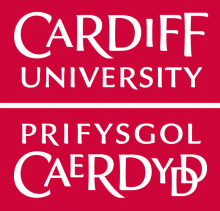The editorial board of a leading Elsevier neuroscience journal have resigned after the publisher hiked its open-access fees to $3,450 (£2,776).
In an open letter published on 17 April, more than 40 editors of NeuroImage and its companion journal NeuroImage: Reports announced that they had quit over the “high publication fee” charged by the open-access title and would be starting a new non-profit journal, Imaging Neuroscience.
“NeuroImage’s editorial team has tried to convince Elsevier to reduce the publication fee from $3,450, as we believe large profit is unethical and unsustainable,” said the statement, which came after the decision to raise NeuroImage’s article-processing charge from $3,000.
The letter explained how editors had formally requested last year that NeuroImage’s article-processing charge (APC) should be reduced to below $2,000. Direct article costs at comparable journals were estimated to be about $1,000, it added, saying editors had warned Elsevier last month that they would quit unless a price reduction was made.
“Scientists and funders increasingly feel that it is wrong for publishers to make such high profits, particularly given that the publishers do not fund the original science, or the writing of articles, or payments to reviewers, and pay minimal editorial stipends,” it said.
As a result, all of the journal’s editors have resigned “with great regret”, it concluded, although they would continue for the next 12 months to handle papers already submitted to avoid “adverse impact” on authors or papers. No newly submitted papers would, however, be reviewed.
Chris Chambers, professor of cognitive neuroscience at Cardiff University and one of the editors to resign, said the latest APC increase was “pure greed on Elsevier’s part and was the straw that broke the camel’s back”.
“The original APC when NeuroImage went open access in 2020 was $3,000, which was already very steep and instantly prohibitive for many scientists,” Professor Chambers told Times Higher Education.
“The plain fact is that we don’t need Elsevier – it is a parasitic company that takes the products of science for nothing and then charges the public, and scientists, to buy back access to them,” he added.
NeuroImage, which published more than 1,000 papers last year and has the highest impact factor of any journal in the discipline, is backed by editors from some of the world’s leading universities, including Harvard, Cambridge, Oxford and UCL. Its former editors are now working with MIT Press to start the new title, which, according to its editors, is “intended to replace NeuroImage as our field’s leading journal”.
The mass resignation is likely to focus attention on the high open-access charges levied by the world’s leading scientific journals, with Nature and Cell charging about £8,000.
In a statement Elsevier said it “value[s] very highly our editors and are disappointed with the decision of the NeuroImage editorial board to step down from their roles, especially as we have been engaging constructively with them over the last couple of years as we transitioned NeuroImage to become a fully open-access journal.
“In line with our policy of setting our article publishing charges competitively below the market average relative to quality, the fee that has been set for NeuroImage is below that of the nearest comparable journal in its field (based on field weighted citation indices),” it added.
The journal has appointed an “interim internal editorial team while we transition to a permanent team that will follow the highly successful hybrid model of in-house/external editors”, added Elsevier.
“We want to reassure all authors that we will continue to work together for the foreseeable future to ensure all submissions already in process are handled appropriately to a final decision” and the journal “has already implemented measures to ensure the continuation of the high service levels for authors of new submissions”, the company said.
Register to continue
Why register?
- Registration is free and only takes a moment
- Once registered, you can read 3 articles a month
- Sign up for our newsletter
Subscribe
Or subscribe for unlimited access to:
- Unlimited access to news, views, insights & reviews
- Digital editions
- Digital access to THE’s university and college rankings analysis
Already registered or a current subscriber? Login










